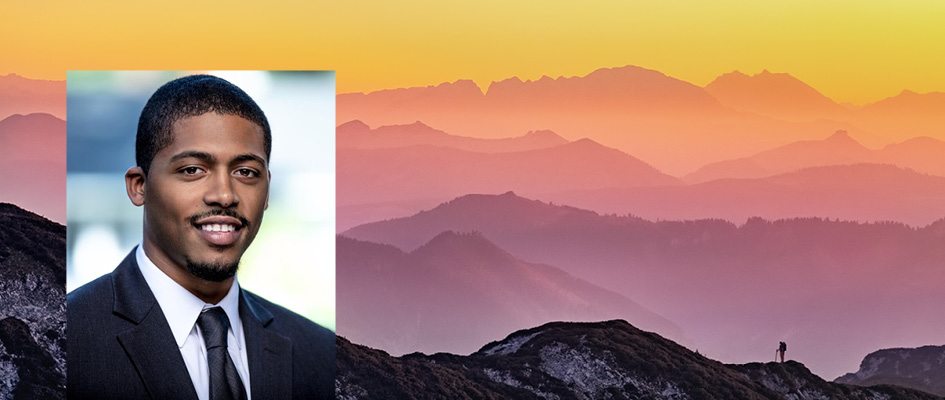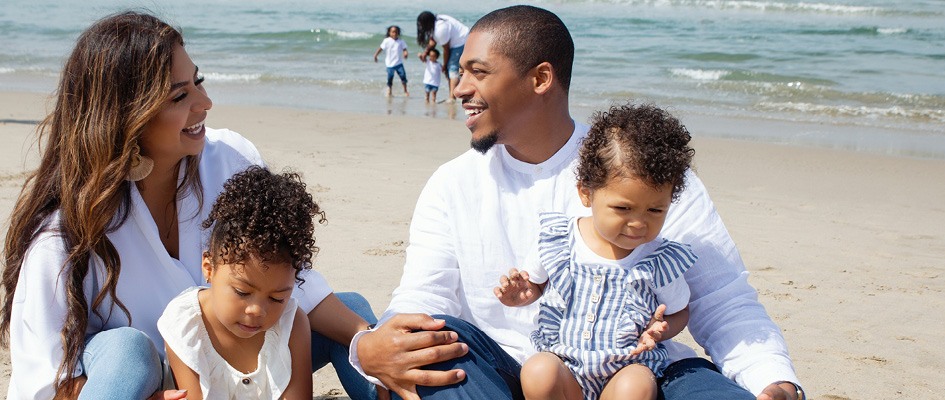Our Voices
Tony Caldwell: Double-Consciousness
During Black History Month, Tony explores the difficulty of confronting barriers in an industry where Black professionals are underrepresented.

Throughout his life, Tony Caldwell, as a Black man, has experienced ongoing microaggressions that forced him to evaluate his interests and behavior to be accepted. Those microaggressions continued at a regional accounting firm in South Carolina, eventually leading to a climax in his internal conflict of identity. Tony joined Moss Adams in 2021 as an assurance manager in the Los Angeles office. Now, he’s marking Black History Month by sharing his experience, and confronting the barriers in the accounting industry, ahead of next week’s webinar.
What does Black History Month mean to you?
It’s a time to highlight the contributions and accomplishments of Black people in our country’s past. As a country, we should celebrate what Black people have endured and overcome, but we also have to confront our past and break barriers to move forward—including in our own industry.
In April 2021, the Journal of Accountancy noted only 2% of CPAs are Black. When you look at where we are today and the origins of the industry, it makes sense we have a problem with Black accountants in the industry.
Can you speak to the representation of Black professionals in the accounting industry?
The profession was never meant to allow Black Americans to be CPAs. I learned from a book by Dr. Theresa Hammond that in the early 1900s many in the Black community were interested in the industry—they even passed the CPA exam—but they couldn’t satisfy the one-year experience requirement because most firms wouldn’t hire Black people. Even if someone made it into the firm, clients asked for no Black people on their engagements.
Over the next few generations, discouraged Black folk couldn’t see themselves in the profession.

How do you think the industry’s history influences your experience as a Black professional?
When I came into accounting eight years ago, I realized that not only was the firm mostly white, but so were most of my clients. I committed to being the hardest working person at the firm so no one could deny me on merit.
I did a lot of things I probably wouldn’t have otherwise done, such as mimicking the speech and interests of those around me, so I could succeed. We call that codeswitching. I learned early to codeswitch as a Black man so I would be perceived as less threatening in white spaces.
Can you elaborate on the early life experiences that informed your behavior in the industry?
Nothing could have prepared me for college. I went to a small, private, predominantly white institution in South Carolina where I played football. I made friends with my teammates, and seven of us—all Black—became good friends. We’d go to parties, we’d meet people, and it would be a lot of fun. The next day in the cafeteria, those people clutched their bags or avoided us.
One of my friends asked a white classmate why that happened, and she told him we scared people because the seven of us were tall, Black, and always together. “It’s intimidating,” she said. For a while, we stopped going places together to be “less threatening,” but we couldn’t control the fear our presence brought to our classmates. In class, I tried to avoid being seen or heard. When I was doing that, I still didn’t get picked for group projects. I didn’t get invited to study groups. Everything I experienced reinforced that I was different, and I felt I didn’t belong when I was left out.
At the same time, I was caught between two worlds. I grew up in a predominantly Black neighborhood, but now I was codeswitching to make myself smaller and survive college. When I went back home, I was called out for acting different. I started to feel out of place at school and with my family. I lost my sense of self trying to figure out who I needed to be in each space—W.E.B. Du Bois defines this as double-consciousness.
That’s a lot to juggle. Did things change once you entered the industry?
In 2014, I graduated and joined a regional firm in South Carolina, and there was only one other Black professional working there. I had to navigate the space, and I didn’t want to intimidate anyone, so I continued to codeswitch at work. I felt like I was acting 100% of the time, and that took its toll.
Then, in 2016, everything caught up to me. The night my nephew was born was the same night Alton Sterling was killed, and it was all over the hospital televisions. There had been so many unarmed Black people dying from police brutality at that time, and it was scary to think of that happening to my nephew one day. I couldn’t hold up the act anymore. I wrote a post on social media talking about my feelings of hopelessness. I knew my colleagues would see it.
After, I felt like my colleagues were being cold to me for calling out racial injustices. I was left out, just like in college. Later, a colleague who was a huge 49ers fan told me he wanted Colin Kaepernick fired because of his protest. Colin’s protest meant a lot. My colleague didn’t consider that he was kneeling for me and all who look like me. I still think about how I didn’t say anything to him. I calculated what I’d be risking in my career. I was so uncomfortable that I chose to be invisible instead.

Did that work experience have a lasting effect on you?
Years of hiding myself led me to lock myself away, and I decided if I can’t be who I really am, I’ll just reduce my interactions. I was an outsider and accepting that made me apathetic about work relationships.
I started avoiding some professional social events to limit how often I needed to codeswitch. It wasn’t until 2019, when I saw more cultural diversity in my move to Los Angeles, that I started to be more comfortable bringing myself into work. I didn’t feel comfortable sharing my experiences as a Black professional at work until George Floyd’s murder in 2020. Being that vulnerable was liberating. It’s therapeutic for me now. I think my experience in the industry could be common for many Black professionals.
Can you talk more about how your experience might translate to other Black professionals?
Our industry is built on relationships, and it’s hard to create relationships when you’re uncomfortable. There are fewer Black professionals in this industry due to its history, which means we’re in a place where we feel othered and very outnumbered. There are barriers to navigate, and we must codeswitch to survive and advance.
How does inclusion play a role in eliminating those barriers?
One of the reasons I came to Moss Adams was because I saw Tullus Miller on the partner list webpage. I remember thinking I could succeed at Moss Adams. That’s huge. It speaks to the importance of inclusion at work.
Also, recognizing the existing disadvantages that impact Black professionals means acknowledging we don’t start our careers in the same place as our colleagues. We’ve got to address this imbalance to be equitable and eliminate barriers. When people at senior levels reach down to pull us up, we’ll have higher quality relationships which will improve our work quality and lead to more belonging. Our nonblack coworkers should know that taking the time to invest in the success of your Black team members, especially when career advising, means helping them feel comfortable communicating as they are. Having someone at work that we can rely on is invaluable, especially when we’re starting out.
Since this profile was published in 2022, Tullus Miller has retired from Moss Adams.
Go Beyond the Desk
At Moss Adams, we believe in the power of possible to empower our clients and people to pursue success however they define it. Explore stories about our professionals, including their personal achievements, at our Beyond the Desk page.